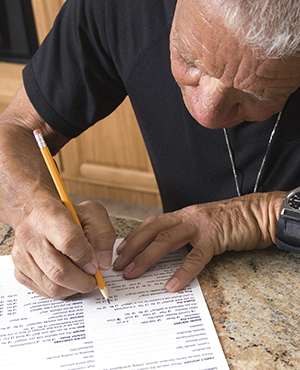Addiction Recovery
What is Addiction?
Addiction is the most significant public health problem in the US today. Its toll is far-reaching, with an estimated 18 million people engaging in problematic drinking and approximately 20% of the population using drugs non-medically. Individuals, their families, and communities are seriously impacted. The consequences of addiction are multi-dimensional and affect healthcare resources, insurance rates, employment opportunities, and the legal system (NCADD, 2015).
Causes of Addiction
Addiction is caused by a pattern of substance use that results in a psychological and/or physiological need for the substance.
![]()
Chronic use of a substance, like alcohol, leads to neurobiological changes that affect thoughts, feelings and beliefs about using.
![]()
Typically, this begins with obsessive thoughts about using or consuming the drug, called “craving”, where an individual feels an intense desire for the drug and feels unable to cope without using it.
![]()
The craving phase is strengthened by drug expectancies; individuals believe that the drug enhances life experiences or improves personality flaws.
Is Addiction Recovery Possible?
Illness does not discriminate and neither does recovery. Recovery is both achievable and sustainable, regardless of age, background, race, financial status, and education. However, it is important to consider that the course of recovery may involve relapse. Relapse is a fact for many, and it indicates the presence of a chronic disease rather than an individual’s failure; relapse is to be expected and managed for recovery to continue. For example, relapse rates in addiction are similar to those in diabetes, hypertension, and asthma.
Seeking Recovery from Addiction
Many avenues and motivations lead to recovery from addiction:
- For example, some enter treatment involuntarily through the legal system only to find themselves embracing recovery. Others have used community support and self-help groups, driven by despair and a hope for a new life, reaching out on their own to other recovering people.
- Still others have sought the expertise and guidance of professional help in a variety of settings—from outpatient counseling to residing in a treatment facility for a time. A great many people have achieved recovery through a combination of such efforts.
Gaining access to services in the community can be done in a number of ways.
- Healthcare providers such as family physicians, nurse practitioners, and mental health counselors can consult with you and make appropriate recommendations.
- Public crisis and informational lines are also available to assist in emergency situations.
- Local hospitals and addiction treatment centers offer phone screenings and information about treatment options.
If you’re ready to start down a path towards addiction recovery, call us at 1-888-993-3112Who Answers? to find out about addiction treatment resources in your area.
Treatment for Addiction
Treatment options cover a wide range of settings, services, and intensities. These include:
- Safe, medically assisted withdrawal and detox.
- Individual, group and family counseling.
- Education.
- Relapse prevention planning.
- Medically assisted treatment of co-occurring conditions.
Alcohol and Drug Addiction Recovery

- Understanding the symptoms and dynamics of addiction
- Addressing the emotional and psychological impact of addiction and recovery
- Developing coping skills and strategies for life in recovery
- Establishing a plan for transitioning from treatment
- Creating a recovery support system
- Developing a relapse prevention plan
- Resuming life fully in the community
Behavioral Addiction Recovery
Behavioral addictions are those involving compulsive behavior as in a gambling or sex addiction. These are also known as ‘process addictions’—one engages in an addictive and problematic process as opposed to ingesting a substance. Since addiction is a condition that can manifest in many ‘flavors’, addiction treatment and recovery dynamics are similar in behavioral addiction and substance addiction recovery, with diverse health-care intervention options available.
Dual Diagnosis Recovery
Many who seek addiction treatment also have other mental health issues for which they need assistance. The terms dual diagnosis, dual disorders, concurrent disorders and co-occurring disorders are used synonymously to refer to the presence of both an addiction and a mental health problem. Dual diagnoses can also be made in those suffering from eating disorders and behavior addictions. Some of the most commonly found mental health problems among people with addictions are:
- Depression
- Anxiety
- PTSD
- Bipolar Disorder
Addiction Recovery Rehabilitation Options
There is a wide range of treatment options to meet the needs of everyone seeking an addiction-free life. Some of the rehabilitation options widely available are listed below. Consultation with an addiction professional can help you determine which is best for you.
Outpatient/Inpatient

Many choose instead to leave home for a while in order to have more structure, more support and a respite from the daily life in which the addiction developed and may still be triggered. The type of substance used, the severity of use and the timeline of use should be considered when choosing between outpatient or inpatient recovery settings
Typically, use of a substance requiring medical supervision for a safe detox requires an inpatient setting. The likelihood of medical supervision depends on severity and time of use. In such cases, many choose outpatient services later as a ‘step down’ from more intensive services.
You can reach our treatment support specialists 24/7 at 1-888-993-3112Who Answers?.
Hospitalization
Partial Hospitalization or Intensive Outpatient Recovery
Residential Recovery
Luxury Residential Recovery
Executive Treatment
How Long Will Recovery Take?
Paying for Recovery

It may seem daunting at first, but investing in treatment can be far less expensive than the costs of maintaining an addiction. There are many options for financing treatment. These include:
- Payment plans arranged with the treatment center.
- Healthcare loans and credit cards from companies that specialize in healthcare financing.
- Personal loans from a financial institution.
- Home equity loans.
- Personal credit cards.
Will Insurance Cover Rehab Costs?
Insurance may pay for your entire treatment or at least part of it. Your insurance carrier will have to be consulted. A referral service, or the treatment program you are considering, can help you determine what your insurance can cover in that setting.
Relapse Prevention for Lasting Recovery
Relapse happens, but it does not have to. A thorough and detailed relapse prevention plan is a significant tool. This includes awareness of the warning signs of relapse and steps to be taken to ensure your recovery continues. Addiction education, coping strategies and recovery resources can equip you to have a sustainable recovery.
Lasting Recovery from Addiction
A comfortable and sustainable recovery is possible. With the proper treatment, you begin recovery with momentum, equipped with the knowledge and skills you need to have a lasting recovery. The rewards of recovery keep coming as you progress throughout the years. You can have the life you want, addiction-free, and keep it for the rest of your life.
Asking for help is the first step. Call us at 1-888-993-3112Who Answers? to hear about addiction treatment options, and take an important step towards lasting recovery.


